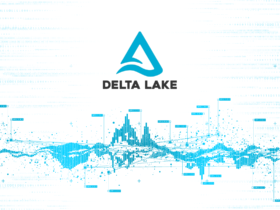GenAI in Healthcare Industry
Gen AI can help medical practitioners evaluate information pertinent to customized treatment strategies by analyzing complex genetic and molecular data. To provide personalized care, Genai helps identify particular genetic markers and their implications in the healthcare industry.
The healthcare industry faces many scaling challenges, such as data management, technological integration, reduced administrative procedures, cost control, regulatory compliance, and patient care optimization.
GenAI is a revolutionary tool technology in which deep learning algorithms and large language models (LLMs) are used. Healthcare practitioners can potentially increase patient involvement, expedite record-keeping, and improve diagnostic accuracy with GenAI.
How the Healthcare Sector is Being Transformed by GenAI

A recent Accenture paper claims that developments in large language AI models, which GenAI employs, have the potential to completely transform the healthcare sector by encouraging innovation and increasing worker and patient efficiency. It is anticipated by nearly all (98%) providers and (89%) executives who took part in the study that these developments will bring about enterprise intelligence since language-based AI has the potential to support or enhance 40% of all working hours.
Real-life application of GenAI in the healthcare industry
Generative AI has produced many application cases in the healthcare industry, and in the upcoming years, many more cases may be developed. Listed below is a list of some examples.
-
Improving the outcomes of clinical trials:
GenAI has already developed solutions to support clinicians in achieving better clinical results that include patient follow-up, treatment delivery, and diagnosis.
Paige.AI is one example that incorporates generative AI into its products for better prostate cancer diagnosis efficacy and accuracy. They were the first to be approved by the FDA to apply generative AI in digital forensics. They wish to combine more clinical data with the information derived from patients’ digital health records.
-
Locating pertinent data for underwriting:
Initially, the insurance firm has to approve many queries, often manually; by using generative AI, customer service representatives can swiftly extract pertinent data from dozens of plan kinds and files, which enhances the effectiveness and quality of these interactions. Thus, the resolution of claiming approvals or denials can be expedited and enhanced by this technology. These models can highlight pertinent explanations, compile acceptance or cancellation codes, describe denial letters, contextualize and outline the next steps for managing these claims, and more.
-
Automation of operations:
Similar to the last example, apps that automate administrative tasks like patient intake, claims, authorizations, appeals, and documentation are currently being investigated.
AI-powered autonomous typing services reduce the time providers spend on administrative work.
-
Monitoring patients:
Although generative AI is still in its infancy, it can already assist with real-time patient monitoring, data analysis, and personalized reports, as well as prompt interventions to prevent medical issues from getting worse.
-
Digital wellness:
Generative AI can be integrated into digital medical services patients’ shifting risk profiles. Digital solutions are available to help healthcare professionals enable healthcare providers to provide more individualized care at a lesser cost that patients can directly connect with.
For example, implementing a chatbot for counseling could provide instant access to inexpensive healthcare.
However, it can also improve the accuracy and cross-domain transferability of image-based solutions. Via mobile apps or monitoring devices, it can support wellness or preventive care because of its versatility and interaction.
-
Clinical trial acceleration:
Generative AI has the potential to improve and speed up clinical trials and personalized treatments, along with drug development.
Recently, validation has been achieved for the digital modeling of medical trials involving synthetic control groups. Additionally, tools are being developed to assist researchers in expanding the usage of currently available medications beyond their original intended application, hence increasing accessibility.
In the future, applying this technology in the pre-clinical and clinical phases could expedite access to medications, even for uncommon illnesses for whom finding a therapy would be highly challenging or monetarily unfeasible.
-
Pharmaceutical firms:

In the pharmaceutical sector, generative AI is extremely helpful as it expedites drug development, enhances clinical trial planning and execution, and produces more targeted treatments.
Certain businesses, like Insilico Medicine, have successfully validated their medicines in a significantly shorter timeframe for a medication intended to treat idiopathic pulmonary fibrosis. The preclinical phase was finished in just thirty months, significantly faster than usual for a novel medication.
The Future of Generative AI in Healthcare
It is anticipated that as GenAI advances and our understanding of its potential grows, its use in health claims will become more widespread. Some predictions include:
-
Improved Experiences for Claimants:
Claimants should anticipate a more streamlined, customized, and educational claims process as GenAI advances in sophistication. This guarantees that claimants feel respected in addition to fostering trust.
-
Cost Optimization for Practitioners:
GenAi ‘s automation powers can save a lot of money for healthcare providers by optimizing resource allocation, streamlining processes, and slashing overhead expenses.
-
Collaborating GenAI Platform:
To deliver an industry-wide standardized and effective claims experience, several insurance carriers may pool their GenAI resources on collaborative platforms in the future.
-
Legislation and Ethical Aspects:
The use of GenAI for health claims has a very bright future. It is expected that GenAI technology will advance and become more precise and effective. It will be even more beneficial to the healthcare sector as a result.
The ethical use of GenAI in healthcare services will become essential, as with any AI advancements. Regulations are expected to be implemented to guarantee the impartial application of AI, safeguard claimant data, and secure the caliber of GenAI outputs.
GenAI is probably going to be quite crucial in processing health claims in the future. It can assist in increasing efficiency, accuracy, and cost-effectiveness in various processes, including adjudication, coding, and PRI.
The challenges for the Future:
Similar to any other technological development, some challenges must be overcome:
-
Privacy and data collection Obstacles:
There are serious privacy issues when personal health data is used to train GenAI systems. Compliance with regulations such as the GDPR and HIPAA underscores the criticality of data protection, hence making GenAI installation compliant.
-
Authenticity and the Efficacy of Derived Data:
It is difficult to guarantee that the data produced by GenAI is trustworthy, impartial, and of the greatest caliber. Additionally, there’s a chance that GenAI will provide inaccurate or deceptive data, which might have severe consequences for the health claims sector.
-
Dynamics of Human-Machine Integration:
A culture change is necessary to make the switch to a GenAI-integrated system. It will be essential to teach staff members how to work with GenAI, comprehend its results, and make defensible decisions in light of those results.
Conclusion
Applying Generative AI (GenAI) in the healthcare sector is a revolutionary step toward providing effective and individualized healthcare services. Because of its capacity to evaluate intricate genetic and molecular data, GenAI can provide personalized treatment plans that enhance patient results. The healthcare industry may greatly benefit from GenAI’s automation capabilities, which help streamline procedures and optimize resource allocation. The industry is currently facing several issues, including data management and regulatory compliance.
GenAI applications in the real world demonstrate the broad potential, from streamlining claim processing and improving clinical studies to automating administrative duties. The technology’s application in digital wellness, pharmaceutical development, and patient monitoring highlights its adaptability and benefits for healthcare delivery.








